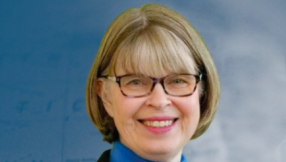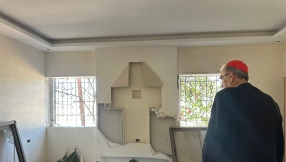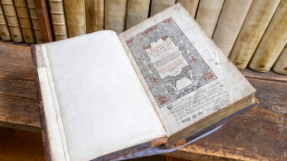Chair of the Lambeth Commission reflects on their workings
Eames expressed his concern that the Anglican Communion had become polarised by the developments in the Canadian Diocese of New Westminster and the Episcopal Church (USA).
"It would not be putting it too strongly to say that there is a sense of betrayal in parts of the Communion about the actions in North America," said Eames.
The Lambeth Commission was assembled by the Archbishop of Canterbury, and consists of Primates, theologians and canon lawyers. It was brought together with the purpose to consider the diverse views affecting the Anglican Communion, and to seek out ways to bring out the highest degree of spiritual union as possible in the face of the great diversity which is evident.
"I am delighted to see the degree of trust and co-operation amongst our members, which has been very encouraging, and which bodes well as we have begun to navigate our way towards our report. I’m extremely grateful for this as Chair," he said.
Each day of meetings begins with the members of the commission gathering together and sharing prayer and Bible study. Rev Robin Eames was adamant that each member have an opportunity to voice their opinion no matter where they have come from.
Due to time restrictions on how much the commission is able to meet there have been few invitations for guest speakers to give presentations to the commission. However, so far the Presiding Bishop of the Episcopal Church (USA) has spoken about the different perceptions of the situation within the province of Kanuga, and also Rev Bob Duncun, a leading voice in the Episcopal Church helped the commission understand the nature and direction of the work of the Network of Anglican Communion Dioceses and Parishes.
The low number of speakers given the opportunity to be heard by the commission has led to criticism that only certain voices are being given the chance to express themselves.
In response to this Eames said, "Very few people have actually had the opportunity to speak to the Commission in person. But I must say that there has been absolutely no intention of listening only to particular voices, or even the loudest voices. From the first, we sent out an open invitation for people to submit evidence to the Commission. Some groups appear to have been waiting for us to take the initiative to contact them. That has not been possible. But can I say again, that we don’t want any voice to go unheard – the opportunity is there for all to make a submission to the Commission. And of course, the individual members of the Commission are listening all the time to the people they encounter in their ministries across the globe."
Rev Eames defended the Lambeth Commissions stance of not directly tackling the issue of sexuality, and only concentrating on how to maintain the unity in the present climate.
"The Lambeth Commission was not asked to reconsider the teaching of Resolution 1.10 of the Lambeth Conference of 1998, and so it is not at liberty to do so. The question of ministry by or to persons of homosexual orientation is not a matter which can be debated beyond the position adopted there, because the Primates made it clear in their statement of last October that Resolution 1.10 remains the formally voiced teaching of the Anglican Communion on this issue."
Looking to the future and to their final report, Rev Eames said: "I’m confident that the level of work will enable the Commission to complete its work by the end of September this year. The Standing Committees of The Primates’ Meeting and the Anglican Consultative Council will be meeting together in mid-October, and I’d like to deliver the report to the Archbishop of Canterbury in time for that meeting.
"However, its worth noting that the Report was commissioned by the Archbishop of Canterbury at the request of the Primates, so the report will go to the Standing Committee of the Primates’ Meeting for their consideration, and not to the Joint Committees. It is the Standing Committee of the Primates which will have to come to a decision about how and when the Primates as a body will respond to the report, although there will have to be consultation with the Standing Committee of ACC because the Anglican Consultative Council will undoubtedly have to receive the report in due course as well."
In conclusion the Chair of the Lambeth Commission said, "When the report is published, I hope that it will be read with prayer and generosity and will provide a basis to help us to face up to any future tensions, and to discern God’s purposes for the Anglican Communion."













